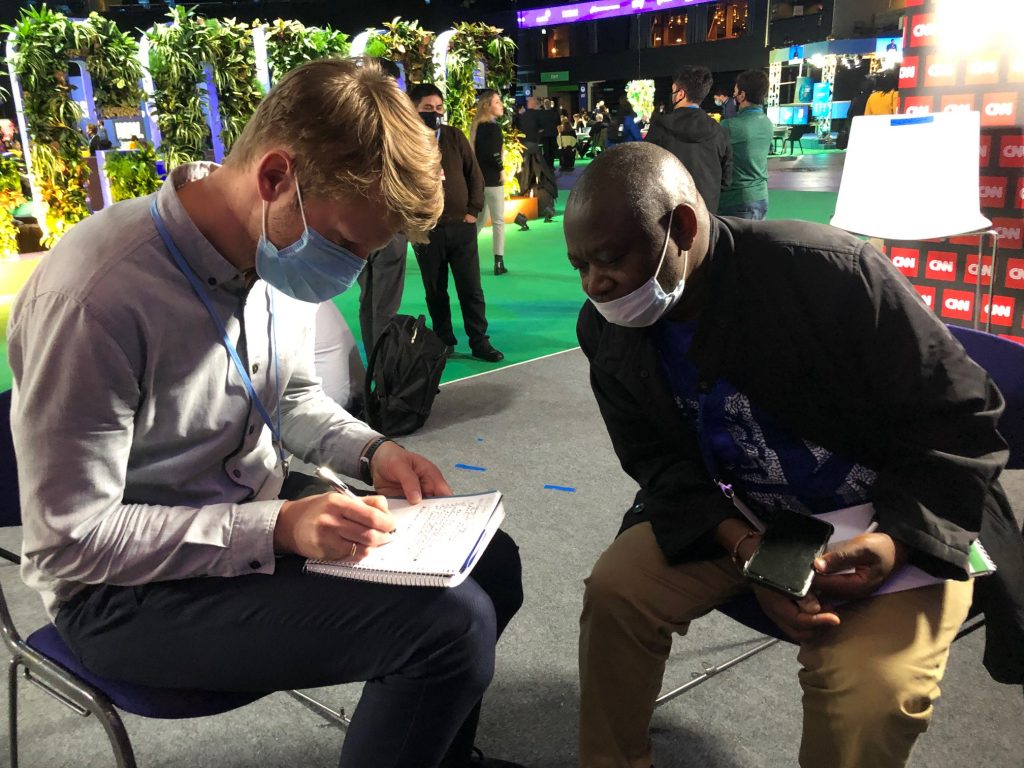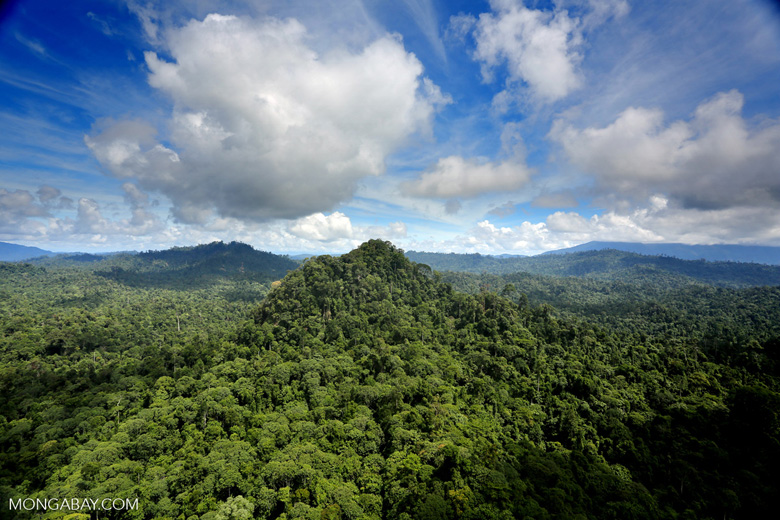
| Torbjørn Gjefsen of Rainforest Foundation Norway, writing in my notebook, makes sure the spelling of Joseph Itongwa’s name and tribal association are correct for my story. Joseph spoke French through a remarkable interpreter who was on the phone he is holding. |
A few days before leaving for Glasgow and COP26, I had a Zoom call with Torbjørn Gjefsen of Rainforest Foundation Norway in Oslo. We spoke at length about the issues he and his group are most focused on: promoting and supporting indigenous rights in tropical countries around the world. He wanted me to do a story from the climate summit; he was pushing on an open door. Here’s why I was eager to write this story.
In September 2018, I covered the Climate Action Summit in San Francisco organized by then California Gov. Jerry Brown and former New York City Mayor Michael Bloomberg. Mongabay wanted me there primary to write about an issue then largely underreported and little recognized: that if tropical countries were serious about preventing deforestation and meeting their carbon reduction pledges under the Paris Agreement, they had no better means of doing both than by returning land tenure and civil rights back to the Indigenous peoples and local communities (IPLC) who have occupied the land, as one tribal leader told me, “since time immemorial.”
Years of meticulous scientific research comparing places where rights had been returned to those where IPLCs were still largely marginalized demonstrated the impact of doing the right thing by nature and humanity.
In Glasgow, during my first two days on site at the Scottish Events Center at the end of the summit’s first week, Torbjørn arranged for me to interview, through translators, Indigenous leaders from Brazil, the Democratic Republic of Congo and Indonesia. It was an honor to talk with each one of them and share their stories at a summit where for the first time their presence was met with praise, recognition and billions in funding for the important role they can play in their home countries in climate mitigation.
As my story explains, the momentum tribal leaders felt in Glasgow will only translate into action if the leaders of those countries allow it. DRC? Yes. Brazil and Indonesia? Not until there are regime changes.


